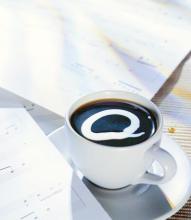Indonesian coffee estate with strong taste. Flavor and taste characteristics. Introduction to Fuyin Estate
In March 2014, Indonesian President Susilo Bambang Yudhoyono signed Presidential decision No. 12 of 2014, formally repealing Circular No. 6 of 1967 and renaming ** (cina) as "China". Circular No. 6 of 1967, a product of the era of former Indonesian President Suharto, contains discrimination and insult to the national dignity and personality of China and the Chinese. The local Chinese said that the discrimination against China and Chinese for more than 40 years will be gone forever, which is a reflection of the progress of Indonesia's democratic politics. [8]
Administrative division
Surabaya Mosque
Surabaya Mosque
The Republic of Indonesia is divided into the Greater Jakarta Capital Zone, the Yogyakarta Special Zone, the Aceh Special Zone, and 30 provinces, with a total of 33 first-level districts. The second-level administrative region has 396 counties and 93 cities (2014 statistics). Other major economic cities include Surabaya, Bandung, Medan, Sanbaolong and Jugang.
Jakarta
The capital Jakarta, located on the northwest coast of Java, covers an area of 740.28km ²and has a population of 10.187 million. It is the political, economic and cultural center of the country and the hub of land, sea and air transportation, as well as the shipping center between southern Asia and Oceania. Jakarta became a famous seaport for exporting pepper and spices more than 500 years ago, when it was called "Sunda Graba", meaning "coconut". It was renamed Chajakarta in 1527, implying victory and glory. In 1618, the Dutch colonial army occupied it and changed its name to "Batavia". During World War II, Japanese invaders occupied Indonesia until Indonesia became independent in 1945 and was renamed Jakarta and designated as the capital of the Republic.
Surabaya
Surabaya is the capital of East Java Province, with a city area of 326km ²and a population of 3.6 million. It is the second largest city in the country after Jakarta, the main naval base, one of Indonesia's important manufacturing, agricultural products processing, trade centers and the sea and air transportation hub of Java. Known as the "city of heroes" for its heroic resistance to Britain during the struggle for independence, there is a special animal in the Indonesian mountains: the civet, which makes Indonesia produce almost the most expensive coffee in the world-civet coffee, also known as Kopi Luwak. This kind of cat likes to eat coffee berries, and hard coffee beans are eventually excreted because they are indigestible. During the period of passing through the digestive tract, coffee beans are fermented to produce a unique and complex aroma. Many foodies like this kind of coffee with special aroma, which is extremely expensive because of its low output.
Kopi Luwak, also known as civet coffee, Kopi Luwak or coffee alamid, also known as civet coffee (according to the Malay translation, Kopi means coffee, Luwak means civet), is the world's most expensive coffee beans, native to Indonesia. Seventeen grams is about two hundred Hong Kong dollars.
The source of the name of cat shit coffee bean
Kopi Luwak is produced by the feces of Indonesian coconut cats (a kind of civet) as raw materials, so it is called "Kopi Luwak". This kind of animal mainly feeds on coffee beans. After completing fermentation in the coconut cat's stomach, it destroys protein, produces short peptides and more free amino acids, reduces the bitterness of coffee, and then excretes feces as the main raw material. Because coffee beans cannot be digested, they are excreted and Kopi Luwak is made after washing and baking. Coffee critic Chris Rubin said, "the aroma of the wine is so rich and strong, and the coffee is incredibly rich, almost like syrup." Its thickness and chocolate taste, and lingering on the tongue for a long time, pure aftertaste. "
Coconut cats are omnivorous animals. In addition to eating seeds, they also eat insects and snakes, birds, amphibians and reptiles [2] [3], so the feces emitted by really wild coconut cats will be mixed with all kinds of substances. Local farmers in Indonesia catch coconut cats to raise them and feed coffee beans to make them. But there is a difference between artificial cultivation and natural ones after all.
Output of cat poop coffee beans
The output of Kopi Luwak is very small, so it is very expensive. And the land for sale is even less. It is rare even in Indonesia of origin. Therefore, most of the Kopi Luwak sold on the market are kept in captivity, and the coffee bean flavor is naturally different from the most primitive and natural wild Kopi Luwak. Mantenin's leaping micro-acid mixes with the richest aroma, making you relaxed.
Manning Coffee
Manning Coffee
When it comes to the lively factor in the mild fragrance, its outstanding taste captivates many suitors. In the 17th century, the Dutch introduced Arabica seedlings to Ceylon (present-day Sri Lanka) and Indonesia. In 1877, a large-scale disaster hit the Indonesian islands, coffee rust destroyed almost all the coffee trees, people had to give up Arabica, which had been in operation for many years, and introduced the disease-resistant Robusta coffee tree from Africa. Indonesia today is a big coffee producer. Coffee is mainly produced in Java, Sumatra and Sulawi, with Robusta accounting for 90% of the total production. Sumatra Manning is a rare Arabica species. These trees are planted on hillsides between 750m and 1500 meters above sea level, mysterious and unique Sumatra, giving Mantenin coffee, rich aroma, rich taste, strong flavor. Make it unique, with a hint of chocolate and syrup.
Mantenin coffee beans have large granules and hard beans, and they are prone to defects in the process of planting. After harvest, they are usually subject to strict manual selection. If the control process is not strict enough, it is easy to cause a mixture of good and bad quality. in addition, the different degree of baking will also directly affect the taste, so it has become a more controversial single product. Mantenin has a strong taste, with a strong mellow and rich and lively sense of movement, neither astringent nor sour, mellow and bitter can be fully revealed. The appearance of Mantenin coffee beans can be said to be the ugliest, but coffee fans say that the worse the Sumatran coffee beans are, the better, mellow and slippery they are.

Important Notice :
前街咖啡 FrontStreet Coffee has moved to new addredd:
FrontStreet Coffee Address: 315,Donghua East Road,GuangZhou
Tel:020 38364473
- Prev

Introduction to the flavor and taste characteristics of the coffee manor in Arusha, Tanzania with light sour taste
Fresh is the most important factor in buying Kilimanjaro coffee beans. There are several steps to judge whether the beans are fresh or not: 1. Grab a handful of coffee beans and feel whether they are solid beans with the palm of your hand. 2. Whether it is enough to smell the aroma close to the nose. 3. Put a bean into your mouth and bite it twice. There is a clear sound indicating that the bean is well preserved and not damp. If you want to buy a single item
- Next

Delicious and balanced Guatemala Chateau Latissa Coffee Flavor Taste Chateau Features
Each region of coffee beans have their own characteristics, but also for Guatemala won a lot of international praise, especially Antigua it sour, sweet, mellow texture is how perfect harmony; add a hint of smoke, more emphasis on its mystery, after tasting you will have reason not to let yourself look for alternatives everywhere. Here, the slopes of Sierra Madre volcano are planted
Related
- Does Rose Summer choose Blue, Green or Red? Detailed explanation of Rose Summer Coffee plots and Classification in Panamanian Jade Manor
- What is the difference between the origin, producing area, processing plant, cooperative and manor of coffee beans?
- How fine does the espresso powder fit? how to grind the espresso?
- Sca coffee roasting degree color card coffee roasting degree 8 roasting color values what do you mean?
- The practice of lattes: how to make lattes at home
- Introduction to Indonesian Fine Coffee beans-- Java Coffee producing area of Indonesian Arabica Coffee
- How much will the flavor of light and medium roasted rose summer be expressed? What baking level is rose summer suitable for?
- Introduction to the characteristics of washing, sun-drying or wet-planing coffee commonly used in Mantenin, Indonesia
- Price characteristics of Arabica Coffee Bean Starbucks introduction to Manning Coffee Bean Taste producing area Variety Manor
- What is the authentic Yega flavor? What are the flavor characteristics of the really excellent Yejasuffi coffee beans?

